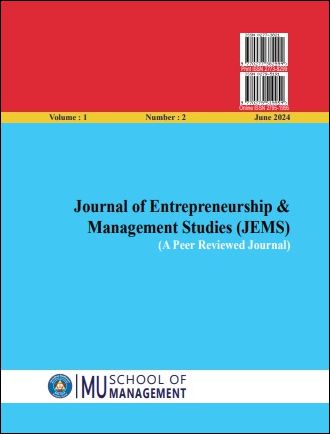Impact of Vegetable Farming on Farmer’s Livelihood Capitals in Birendranagar, Surkhet
DOI:
https://doi.org/10.3126/jems2.v1i2.67796Keywords:
fertilizer, income, livelihood, saving, vegetable farmingAbstract
This research examines the impact of vegetable farming on farmer livelihoods in Birendranagar, Nepal, which is located in the Karnali province and Surkhet district. The study used a household questionnaire survey and field observation to obtain information about vegetable farming and its impact on farmers' livelihoods. The study used convenience and snowball sampling to perform 72 household questionnaire surveys in wards nine, ten, and eleven of Birendranagar municipality . The acquired field survey data was statistically analysed using the frequency, percentage, and chi-square tests. The outcome indicates that the livelihood of vegetable producers has improved in recent years. For their household expenses, 81.9 percent of households generate income from vegetable gardening. The majority of farmers did not take out loans. Only 31.9 percent of respondents received grants from various sources, although most respondents did not receive any subsidy. Farmers primarily utilise their revenue to manage food, clothing, children's education, and daily necessities. Furthermore, the majority of farmers have obstacles in their vegetable cultivation due to a lack of appropriate human resources, improved seeds, and fertiliser. According to the chi-square test results, there is a significant improvement in livelihood after engaging in vegetable farming, as well as significant increases in physical services (TV, mobile, internet), savings, social prestige, and agricultural technological knowledge after engaging in vegetable farming. Furthermore, vegetable farmers are utilising their expertise and are committed to improving their livelihood through vegetable farming.




